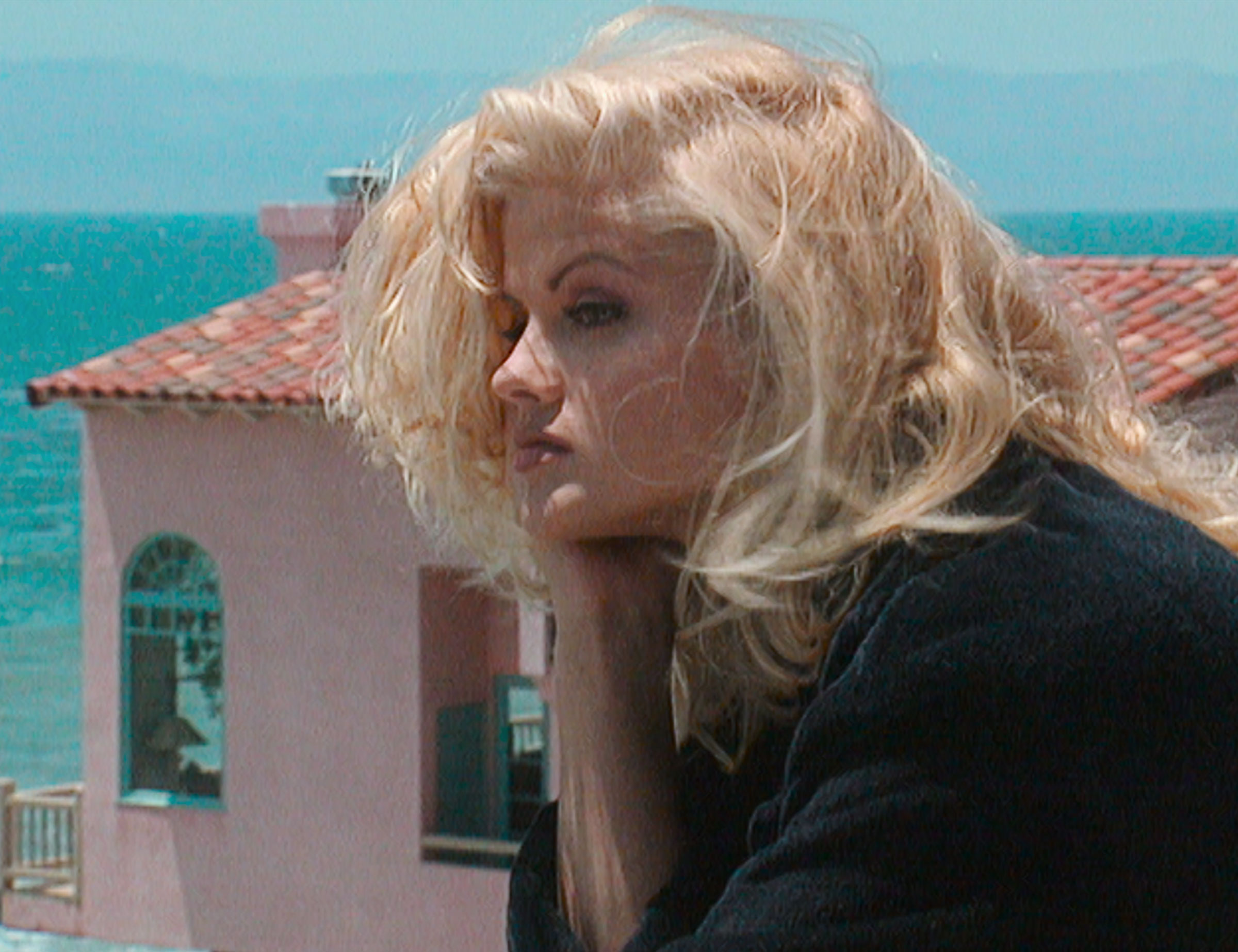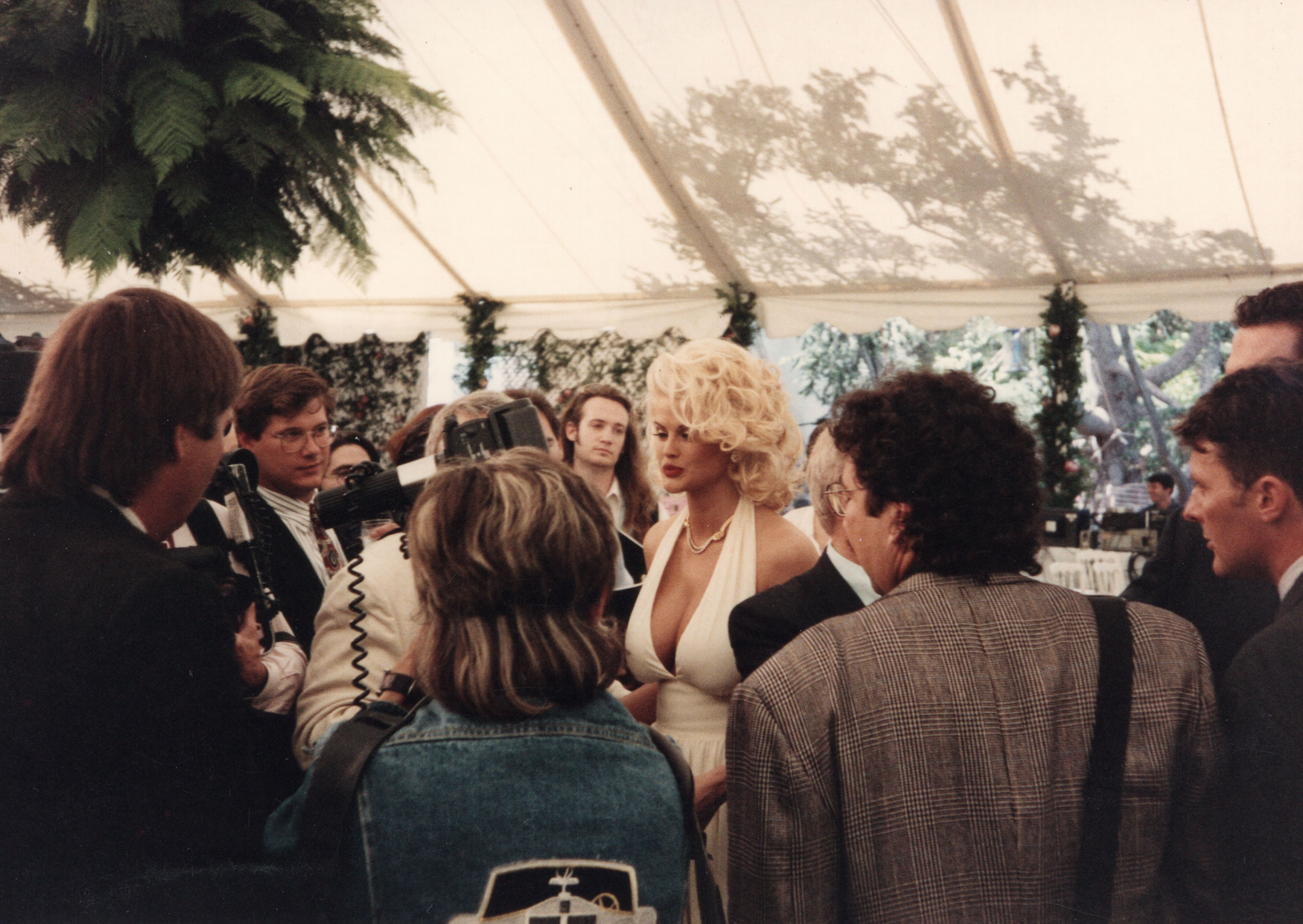In recent years, a re-examination of early-aughts tabloid culture and its casual misogyny has led to a wave of projects that seek to lend nuance to the stories of celebrity women who were objectified, maligned, or otherwise misrepresented during their heydays. There were multiple Britney Spears documentaries that called her conservatorship into question. Jessica Simpson published a hit memoir that confronted the tabloids’ cruel characterizations of her. A film about Pamela Anderson addressed the backlash of her sex tape controversy. Paris Hilton’s memoir and documentary challenged stereotypes that have followed her for years and revealed what she had endured in institutions for “troubled teens.” It’s clear that there’s a hunger for revisiting these stories to provide more context and clarity to the public—and more power and agency to their subjects. That’s unfortunately not the outcome in the case of Anna Nicole Smith: You Don’t Know Me, a new Netflix documentary directed by Ursula Macfarlane that tries but ultimately fails to reframe the narrative around the late model and media personality.
Anna Nicole Smith died from an accidental drug overdose in 2007 at age 39. During her lifetime, she was many things: a model for both Playboy and Guess, an actor, a sex symbol, a prototype for our modern, famous-for-being-famous brand of celebrity. Bursting onto the scene during the “tabloid decade,” Smith was a prime candidate for the era’s sensationalist coverage as a girl from small-town Texas who was catapulted to fame for her looks. And if her origin story was compelling, then her high-octane personal life was absolutely riveting. Among the headlines: her romance with an octogenarian billionaire, which resulted in an inheritance lawsuit, and a paternity case that involved multiple suitors (including Zsa Zsa Gabor’s husband) claiming to have fathered Smith’s daughter.
Smith’s omnipresence in the press looms large in the new documentary, which opens with a series of familiar clips: glamour shots roving sensually over Smith’s face at a photoshoot, the flashes and clicks of cameras in harried paparazzi footage, the gawking crowds surrounding her body as it was wheeled to an ambulance after her death. The opening montage is a mini roundup of Smith’s turbulent life, a prelude to the film’s efforts to reveal the real Smith that only reinforces the lurid focus to come.

To try to tell Smith’s story, Macfarlane revisits the past, starting with Smith’s early childhood in Mexia, Texas. The film charts her evolution from Vickie Lynn Hogan, an attention-obsessed young girl and later single mother working in Houston’s topless clubs, to model Anna Nicole Smith, who landed the life-changing opportunity to become Playboy’s 1993 Playmate of the Year. It was a title that ushered in an era of extreme celebrity for Smith, who would later parlay that fame, along with the notoriety gained from her marriage to billionaire oil tycoon J. Howard Marshall, into becoming one of the earliest reality TV stars and influencers (before there was Keeping Up With the Kardashians and flat tummy tea, there was The Anna Nicole Smith Show and TrimSpa). Yet throughout the recounting of Smith’s all-American rise, the film is as preoccupied with Smith’s scandals as the media was. The documentary does give Smith some credit: it makes clear that her fame didn’t happen by sheer luck, but instead as a result of her own hunger for it, her own ambition and agency. Yet the film’s depiction of Smith’s equally voracious hunger for money, food, drugs, and sex undermine that effort, gawking at Smith’s antics instead of humanizing her.
The film makes use of never-before-seen footage including home videos of Smith and her late son, Daniel (who died of a drug overdose at 20, less than five months before his mother), and features interviews with people who were close to her, including her brother, her half-brother, and a close friend and employee who’s simply identified as Missy. But it fails to use these elements to add nuance to Smith’s story, instead amplifying the sensationalism of her life. According to a friend’s interview in the film, Smith alleged that her biological father, who she did not meet until she was an adult, attempted to have sexual relations with her. Smith’s half-brother seems taken aback when asked about this allegation, making his concession that it was possible that their father sexually harassed Smith feel less like a sobering reveal and more like a bid for clickbait. Meanwhile, Missy says in an interview that she had a romantic relationship with Smith. She also claims that Smith took the story of her abusive upbringing and fed it to the media as her own. Both revelations feel haphazard, presented with little care or resolution.

Even the most intimate footage of Smith in the film does little to disrupt pre-existing notions about who she was. An impatient call where Smith berates Marshall for waking her up comes with little context but offers plenty of vulgar emotion. Her infamous speech at the 2004 MTV Video Music Awards, which sparked speculation that she was under the influence and reinforced her reputation as an airhead, is reframed in an interview with her former bodyguard as a strategic performance on Smith’s part to spur media attention. But even that argument fails to uncover Smith’s motivations beyond an obsession with the spotlight, painting her as simply fame-greedy and selfish.
Like all mortals, Smith had her shortcomings. But focusing so overtly on the splashy, scandalous aspects of her rise and fall reduces her to the headlines and stereotypes viewers already associate with her. She was beautiful. She was famous. She was deeply flawed. She was also a person, and unfortunately, in its hyper focus on her struggles, Anna Nicole Smith: You Don’t Know Me is ultimately more of a voyeuristic cautionary tale than an accounting of a complex woman’s humanity.
More Must-Reads from TIME
- Caitlin Clark Is TIME's 2024 Athlete of the Year
- Where Trump 2.0 Will Differ From 1.0
- Is Intermittent Fasting Good or Bad for You?
- The 100 Must-Read Books of 2024
- Column: If Optimism Feels Ridiculous Now, Try Hope
- The Future of Climate Action Is Trade Policy
- FX’s Say Nothing Is the Must-Watch Political Thriller of 2024
- Merle Bombardieri Is Helping People Make the Baby Decision
Write to Cady Lang at cady.lang@timemagazine.com